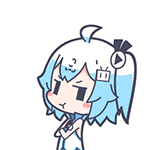周末卷16-C
C
Dr. Donald Sadoway at MIT started his own battery company with the hope of changing the world’s energy future. 麻省理工学院的Donald Sadoway博士创办了自己的电池公司,希望能够改变世界能源的未来。 It’s a dramatic endorsement (支持) for a technology most people think about only when their smartphone goes dark. But Sadoway isn’t alone in boasting about energy storage as a missing link to a cleaner, more efficient, and more equitable energy future.
Scientists and engineers have long believed in the promise of batteries to change the world. Advanced batteries are moving out of specialized markets and creeping into the mainstream, signaling a tipping point for forward-looking technologies such as electric cars and rooftop solar propels.
The ubiquitous (无所不在的) battery has already come a long way, of course. For better or worse, batteries make possible our mobile-first lifestyles, our screen culture, our increasingly globalized world. Still, as impressive as all this is, it may be trivial compared with what comes next. Having already enabled a communications revolution, the battery is now poised to transform just about everything else. 电池已经引发了一场通信革命,现在它正准备改变一切。
The wireless age is expanding to include not just our phones, tablets, and laptops, but also our cars, homes, and even whole communities. In emerging economies, rural communities are bypassing the wires and wooden poles that spread power. Instead, some in Africa and Asia are seeing their first lightbulbs illuminated by the power of sunlight stored in batteries. 相反,非洲和亚洲的一些人看到他们的第一个灯泡是使用储存在电池里的阳光照明的。
Today, energy storage is a $33 billion global industry that generates nearly 100 gigawatt-hours of electricity per year. By the end of the decade, it’s expected to be worth over 50 billion dollars and generate 160 gigawatt-hours, enough to attract the attention of major companies that might not otherwise be interested in a decidedly pedestrian technology. Even utility companies, which have long viewed batteries and alternative forms of energy as a threat, are learning to embrace the technologies as enabling rather than disrupting.
‘Today’s battery breakthroughs come as the world looks to expand modern energy access to the billion or so people without it, while also cutting back on fuels that warm the planet.’ 今天的电池突破出现之际,世界正寻求为10亿左右没有现代能源的人提供现代能源,同时减少使地球变暖的燃料。 Those simultaneous challenges appear less overwhelming with increasingly better answers to a centuries-old question: how to make power portable.
To be sure, the battery still has a long way to go before the nightly recharge completely replaces the weekly trip to the gas station. A battery-powered world comes with its own risks, too. What happens to the centralized electric grid, which took decades and billions of dollars to build, as more and more people become “prosumers”, who produce and consume their own energy onsite? 随着越来越多的人成为“生产者”,即在现场生产和消费自己的能源,花了几十年和数十亿美元建造的集中式电网会怎么样?
No one knows which-if any-battery technology will ultimately dominate, but one thing remains clear. 没有人知道哪种电池技术(如果有的话)将最终占据主导地位,但有一件事是明确的。 The future of energy is in how we store it.
What does Dr. Sadoway think of energy storage?
A. It involves the application of sophisticated technology.
B. It is the direction energy development should follow.
C. It will prove be a profitable business.
D. It is a technology benefiting everyone.What is most likely to happen when advanced batteries become widely used?
A. Mobile-first lifestyles will become popular.
B. The globalization process will be accelerated (加速).
C. Communications will take more diverse forms.
D. The world will undergo revolutionary changes.In some rural communities of emerging economies, people have begun to ___________.
A. find digital devices simply indispensable
B. communicate primarily by mobile phone
C. light their homes with stored solar energy
D. distribute power with wires and wooden polesWhat does the author imply about the centralized electric grid?
A. It might become a thing of the past.
B. It might turn out to be a “prosumer”.
C. It will be easier to operate and maintain.
D. It will have to be completely transformed.
